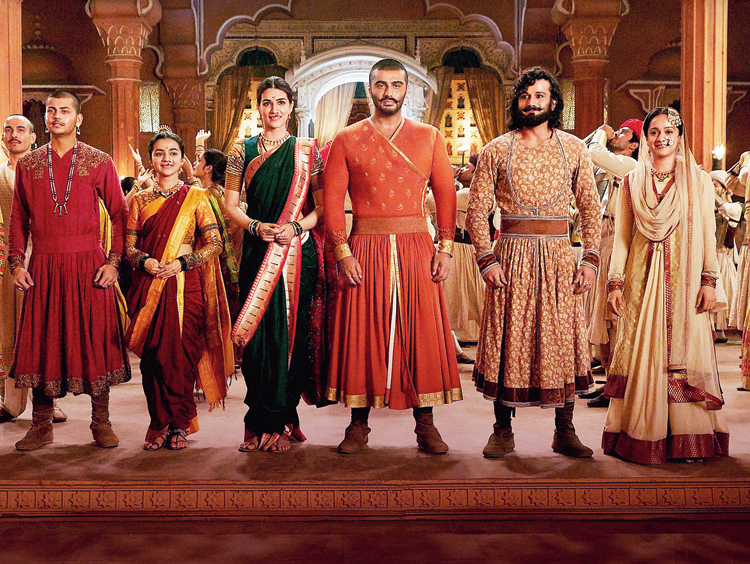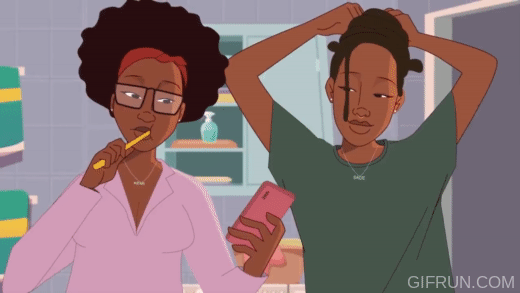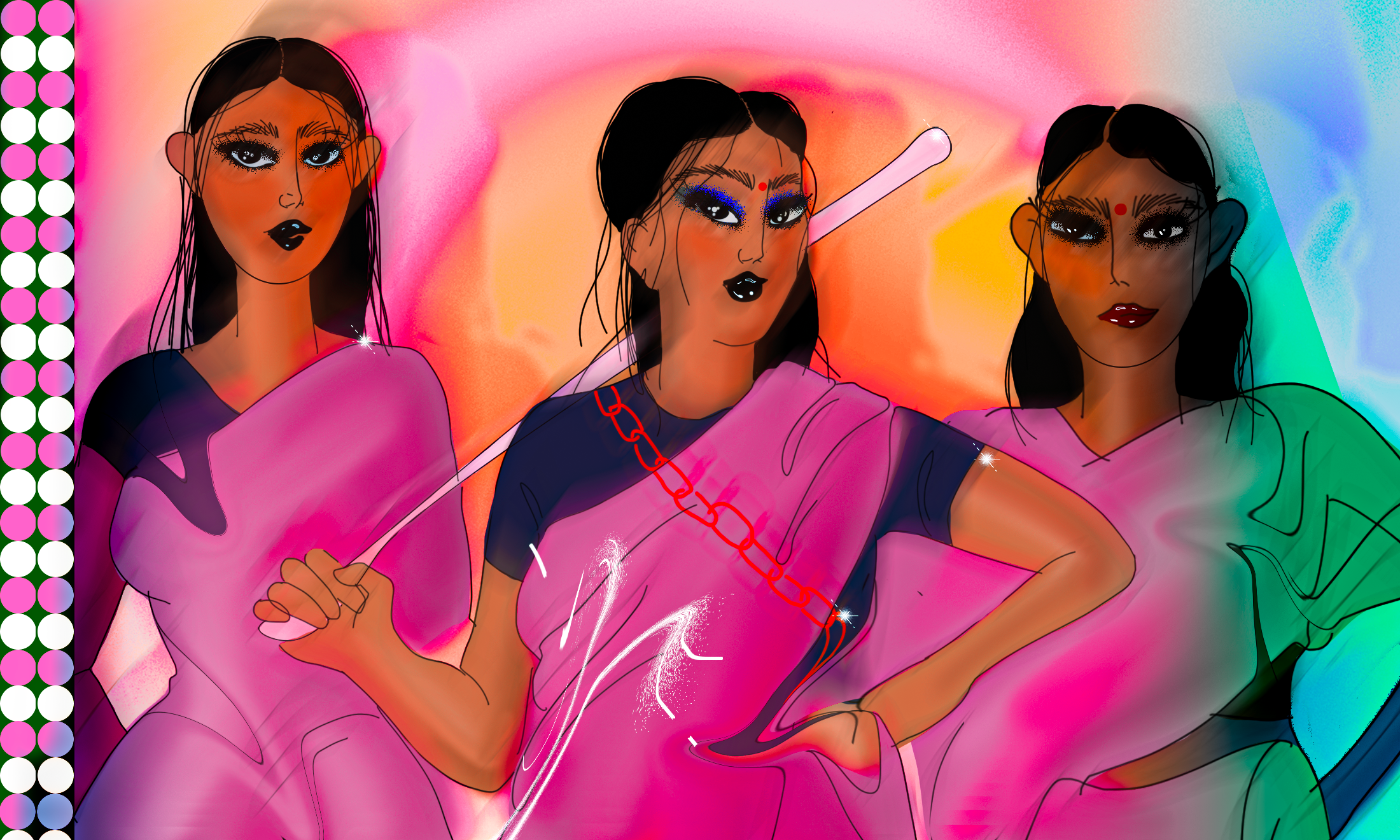India’s protests show Bollywood has a Hindu nationalism problem
Recent unrest and a Rihanna tweet have brought the nationalists out of the woodworks in India's beloved entertainment industry.
Mishti Ali
06 Mar 2021

Still via Panipat
When Rihanna tweets, we pay attention. At the beginning of February, the entrepreneur and former singer tweeted her horror at the media’s silence surrounding the Indian farmer protests. Her message in support of the farmers, who have been protesting against the government in the face of violence and internet shutdowns, was short and to the point: “Why aren’t we talking about this?! #FarmersProtest”. She didn’t offer any overt critique of the government yet was met with pushback from a host of Indian super-celebrities. From Virat Kohli to Akshay Kumar, Lata Mangeshkar, Sachin Tendulkar, Saina Nehwal and Pragyan Ojha, there was a widespread backlash across the platform by many who are equally famous, if not more, in India.
The farmers protesting have been encamped outside New Delhi, the country’s capital, since November, fighting the government’s planned reshaping of farm laws. The intended changes would minimise the part played by the government in the industry, arguing that it would encourage private investment and lead to growth. However, the farmers say that the lack of regulation would leave them helpless. Already, the protests have revealed huge inequalities across the country; although two in three of Indians rely on farming for their livelihood, it accounts for just 15% of the country’s income.
“In recent years, there’s been a rise in movies which rewrite the narrative of Indian history”
Bollywood is traditionally known for glamour, star-studded dance sequences and sparkling outfits – a far cry from the farmers’ protests, and the far-right government they are standing up to. But in recent years, there’s been a rise in movies that rewrite the narrative of Indian history. Some, like Panipat and Tanhaji, often portray the victory of Hindu Indian armies and protagonists against a Mughal Muslim enemy.
Actor Ajay Devgn, who has an estimated net worth of $30 million (£22 million) and has appeared in at least 127 movies, responded with a tweet decrying “false propaganda against India or Indian policies” and pleading for Indians to “stand united at this hour [without] any infighting”. His sentiment is seemingly in opposition to the farmers struggling for a fair deal. It was an ironic demand, considering the long history of tumult under Prime Minister Narendra Modi’s far-right government. Today, it’s the farmers’ protests; a year ago, New Delhi was burning during anti-Muslim riots, and Shaheen Bagh protestors were demonstrating against the Citizenship Amendment Bill which threatens the safety of a 200 million-strong Muslim community. Unity is not on Modi’s agenda.
The pro-Modi, pro-Hindutva tweets from Bollywood have been coming outside of the farmers’ protests too. Actress Kangana Ranaut came under fire for describing a “cancer in the body of [the] nation [of India]”, talking about a “process of eradication”, just two days after responding to Rihanna’s tweet and calling the protestors “terrorists”. Many argued that the tweet constituted support for and incitement of a Muslim genocide. Her sister, Rangoli, also an actress, recently had her account suspended, following accusations of similar incitement to Islamophobic violence.
These social media messages are clearly in support of Modi, and therefore of his Hindutva ideology. Hindutva is a violent ideology that conflates Indian identity with an idealised perception of “Hindu-ness”. In practice, this means persecuting different religious groups within the country, particularly Sikhs and Muslims, and questioning where their loyalties lie (with Sikhs often referred to as “Khalistani” and Muslims accused of being agents of Pakistan). So why would the stars who frequent Bollywood’s red carpet endorse it so strongly?
“Hindutva is a violent ideology that conflates Indian identity with an idealised perception of ‘Hindu-ness’”
The pushback in response to Rihanna’s tweet, along with all the associated conspiracy theories and conflict, isn’t a new phenomenon. In fact, in 2019, Priyanka Chopra came under fire for a social media post declaring “Jai Hind” – which loosely translates as “Long Live India” – and using the hashtag #IndianArmedForces. The message was tweeted as India launched airstrikes on Pakistan, leading to further strikes by Pakistan: the lowest point of relations between the two countries in years. This was seen as explicit support of Modi’s agenda and was part of a wider pattern of her cosiness with the PM, who was invited to her wedding to Nick Jonas. All this came despite her also being a Unicef Goodwill Ambassador, demonstrating how such nationalism is normalised.
Similarly, at Modi’s second swearing in ceremony in 2019, Bollywood director Karan Johar posted a star-studded picture on Instagram (also featuring Kangana Ranaut, Rakesh Om Prakash Mehra and Shahid Kapoor), boasting of his presence at the political event. The Hindutva-Bollywood crossover is one which has been years in the making.
Perhaps Bollywood star’s support for far right nationalism makes more sense when you examine what it usually takes to become famous in India. The Bollywood industry has long been the domain of dynasties like the Bachchans, the Bhatts, the Khans, the Roshans and the Kapoors. Nepotism has long been the order of the day, and it’s a notoriously difficult industry to break into. It’s an industry where light-skinned actresses thrive. Tannishtha Chatterjee said that she was told to wear skin-lightening products to play ‘urban’ characters. Bollywood movies are also dominated by protagonists from upper castes, with most featuring wealthy Indians abroad, or middle class families in the country’s metropolises.
Meanwhile, Priyanka Chopra, Sonam Kapoor, Disha Patani and Deepika Padukone are all actresses who fronted advertising campaigns for skin lightening products, a $4 billion industry. The link between colourism and casteism is one that’s been made for years; people in lower castes often had darker skin, due to being manual labourers and spending time in the sun. At the top were fair-skinned military and religious leaders, an association which was strengthened during the British Raj. BJP leaders have come under fire for policies that seem to strengthen the caste system and while we can’t speculate as to the political leanings of individuals, many of the rich and powerful in Bollywood have a vested interest in upholding the status quo that puts them on top.
“The Bollywood industry has long been the domain of dynasties like the Bachchans, the Bhatts, the Khans, the Roshans and the Kapoors”
After Bollywood legend Amitabh Bachchan had his name featured in the notorious Panama Papers, it was Modi’s party, the BJP, who chose to defend him. Vivek Oberoi, who’s long been outspoken in his support for Modi, landed a role playing the prime minister in his biopic. Evidently, fawning over Islamophobes is a profession which pays well.
It’s not every single star. There has been some pushback from likes of Richa Chadha, who spoke out against Modi’s controversial new citizenship law. But those who do are few and far between.
With an influence reaching far beyond India’s borders, the politicians that these stars choose to support is important. The Bollywood industry is seen as a key form of soft power for India, with author Roopa Swaminathan saying: “Bollywood cinema is one of the strongest global cultural ambassadors of a new India.” For those in the South Asian diaspora, cheesy dance sequences with catchy songs and twirling fabrics will be a familiar presence on TV screens growing up. And so will the ideologies promoted by the celebrities that star in them.
Lets not forget that the Tories have pursued a friendly relationship with Modi’s BJP; in constiuencies with large Hindu populations, they have exploited a sharp rise in Hindu nationalism and played on Islamophobic sentiment. So both in Bollywood and in the UK’s halls of power, those in high-up positions all place their support with Modi and his far-right ideology. But with the anti-Rihanna pushback mirroring the government’s response, one has to question the possibility of a coordinated social media management. The language of unity, and anger at perceived foreign meddling (with many drawing on anti-colonial sentiment), has been rolled out uniformly across social media.
Time Magazine has argued that the protests constitute a turning point in India’s democracy, with many of the country’s persecuted groups (from Muslims to Sikhs and lower-caste Dalits) pulling together in solidarity. There seems to be a growing divide between Bollywood’s vociferous support for Hindutva policies and the sentiment on the ground. Yet so long as selling out ethics and demonstrating support for a far-right populist government continues to pay, it seems unlikely that a change will come any time soon.









